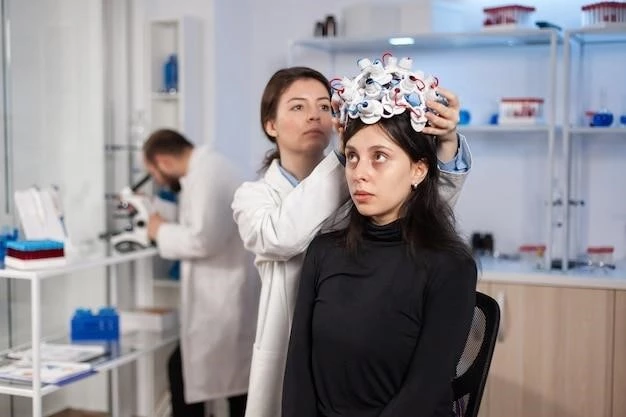Understanding Escher–Hirt Syndrome
Escher–Hirt Syndrome is a rare genetic disorder with neurological and developmental symptoms. This article provides insights into the disease, including its symptoms, genetic basis, treatment options, complications, and research directions.
Overview of Escher–Hirt Syndrome
Escher–Hirt Syndrome, also known as autosomal recessive disorder, is a rare genetic condition characterized by neurological and developmental abnormalities. Individuals with this syndrome may experience symptoms such as delayed development, intellectual disability, seizures, and movement disorders. The diagnosis of Escher–Hirt Syndrome involves genetic testing to identify mutations in the responsible gene.
The genetic basis of Escher–Hirt Syndrome involves mutations in a specific gene that leads to a deficiency in a crucial protein essential for neurological development. This deficiency results in the diverse symptoms seen in affected individuals. As an autosomal recessive disorder, both parents must carry a copy of the mutated gene for their child to inherit the syndrome.
Treatment for Escher–Hirt Syndrome focuses on managing symptoms and complications associated with the condition. Therapies such as physical therapy, speech therapy, and occupational therapy can help improve the quality of life for individuals with this syndrome. It is crucial for patients to receive multidisciplinary care from a team of healthcare professionals to address their complex needs.
Understanding the complications and prognosis of Escher–Hirt Syndrome is essential for providing appropriate care and support to affected individuals. Research into this rare genetic disorder is ongoing, with a focus on developing targeted therapies to address the specific deficiencies underlying the condition. By staying informed about the latest advancements in research, healthcare providers can offer the best possible care for patients with Escher–Hirt Syndrome.
Symptoms and Diagnosis
Escher–Hirt Syndrome presents with a range of symptoms affecting neurological and developmental functions. Common symptoms include delayed development milestones, intellectual disability, seizures, movement disorders, and speech impairments. These manifestations can vary in severity among individuals.
Diagnosing Escher–Hirt Syndrome involves a comprehensive evaluation of the patient’s symptoms, followed by genetic testing to identify mutations in the responsible gene. Neurological assessments, imaging studies, and laboratory tests may also be used to support the diagnosis. It is essential for healthcare providers to consider the clinical presentation along with genetic testing results for an accurate diagnosis.
Early recognition of symptoms and prompt diagnosis are crucial for initiating appropriate interventions and support services for individuals with Escher–Hirt Syndrome. Collaborating with genetic counselors and specialized healthcare professionals can help guide the diagnostic process and provide valuable information for families affected by this rare genetic disorder.
By understanding the typical symptoms and diagnostic approaches for Escher–Hirt Syndrome, healthcare providers can enhance their ability to identify and manage this complex condition effectively. Continued research and advancements in genetic testing technologies are key to improving the diagnostic accuracy and expanding treatment options for individuals living with Escher–Hirt Syndrome.
Genetic Basis and Inheritance

Escher–Hirt Syndrome is caused by mutations in a specific gene that leads to a deficiency in a crucial protein essential for neurological development. This genetic abnormality disrupts normal brain function and can result in the diverse symptoms observed in individuals with the syndrome.
The inheritance pattern of Escher–Hirt Syndrome is autosomal recessive, meaning that individuals must inherit two copies of the mutated gene – one from each parent – to develop the condition. Carriers of a single copy of the mutated gene are typically asymptomatic but can pass the gene on to their offspring.
Understanding the genetic basis and inheritance pattern of Escher–Hirt Syndrome is vital for individuals and families affected by the condition. Genetic counseling can provide valuable information on the risk of passing on the syndrome to future generations and guide family planning decisions.
Advancements in genetic testing technologies have enhanced the ability to identify specific genetic mutations associated with Escher–Hirt Syndrome, facilitating more accurate diagnoses and personalized treatment approaches. Ongoing research into the genetic mechanisms underlying the syndrome offers hope for targeted therapies that address the root cause of the disorder.
Treatment and Therapy Options
Managing Escher–Hirt Syndrome involves a comprehensive approach aimed at addressing the various symptoms and complications associated with the condition. While there is no cure for the syndrome, treatment and therapy options can help improve quality of life and enhance functional abilities.
Therapeutic interventions for individuals with Escher–Hirt Syndrome may include physical therapy to enhance motor skills, occupational therapy to facilitate independent living, and speech therapy to address communication challenges. These therapies can target specific areas of development affected by the syndrome and promote overall well-being.
In addition to therapy, individuals with Escher–Hirt Syndrome may benefit from a multidisciplinary care team consisting of healthcare professionals specializing in neurodevelopmental disorders. This collaborative approach can ensure that patients receive comprehensive support tailored to their unique needs.
Regular monitoring of symptoms and ongoing adjustments to treatment plans are essential for optimizing outcomes for individuals with Escher–Hirt Syndrome. Family members and caregivers play a crucial role in supporting the individual’s treatment journey and advocating for their needs within the healthcare system.
By exploring the available treatment and therapy options for Escher–Hirt Syndrome and collaborating with healthcare providers, individuals affected by the condition can access the support and resources necessary to enhance their quality of life and maximize their potential.
Complications and Prognosis
Individuals with Escher–Hirt Syndrome may experience various complications related to neurological and developmental challenges. These complications can include difficulties with mobility, speech delays, cognitive impairments, and seizures, impacting daily functioning and quality of life.
The prognosis for individuals with Escher–Hirt Syndrome can vary depending on the severity of their symptoms and the level of support and intervention they receive. Early detection, intervention, and ongoing management of complications play a critical role in shaping the long-term outlook for affected individuals.
Complications such as muscle stiffness, feeding difficulties, and behavioral issues may require specialized care and interventions tailored to the individual’s needs. Working closely with a team of healthcare professionals, including neurologists, therapists, and social workers, can help address these challenges and improve overall well-being.
Understanding the potential complications associated with Escher–Hirt Syndrome can guide healthcare providers in developing personalized care plans that address specific needs and minimize risks. By proactively managing complications and providing appropriate support, individuals with the syndrome can lead fulfilling lives and reach their maximum potential despite the challenges they may face.
Research and Future Directions
Research into Escher–Hirt Syndrome is advancing our understanding of the underlying genetic mechanisms and pathophysiology of the disorder. Ongoing studies aim to uncover new treatment targets and therapeutic approaches that can improve outcomes for individuals affected by this rare genetic condition.
Genetic research plays a crucial role in identifying novel gene mutations associated with Escher–Hirt Syndrome and elucidating how these mutations impact neurological development. By studying these genetic abnormalities, researchers can develop targeted therapies that address the specific deficiencies causing the diverse symptoms seen in affected individuals.
Future directions in Escher–Hirt Syndrome research may involve exploring gene therapy approaches to correct genetic mutations, investigating potential pharmacological interventions to modulate protein expression, and conducting clinical trials to evaluate the safety and efficacy of emerging treatments. Collaborative efforts between researchers, clinicians, and advocacy groups are essential for advancing knowledge and translating research findings into clinical practice.
By staying informed about the latest research findings and participating in research initiatives, healthcare providers can contribute to the collective efforts to enhance the understanding and management of Escher–Hirt Syndrome. Continued investment in research and innovation holds promise for improving outcomes and quality of life for individuals living with this complex neurodevelopmental disorder.
